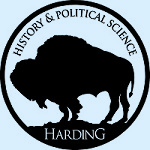Article Title
Publication Date
2017
Abstract
Carl von Clausewitz’s On War has been heralded as one of the most influential theories of war. It has influenced statesmen as diverse as Dwight Eisenhower, Vladimir Lenin, and Adolf Hitler. After having been incorporated into various schools of thought, taught to soldiers and studied extensively, it begs the question: what explains the continuous relevance of Clausewitz’s theory, despite changing contexts and technology? This paper posits that Clausewitz presented war as an extension of politics composed of a trinity of forces, used methodology that would transcend eras, and wrote about war’s very nature. In doing so, On War gained its unique flexibility whose ideas can be applied to diverse settings, both in history and the modern era.
Included in
History Commons, International Relations Commons, Military and Veterans Studies Commons, Peace and Conflict Studies Commons, Political Theory Commons




